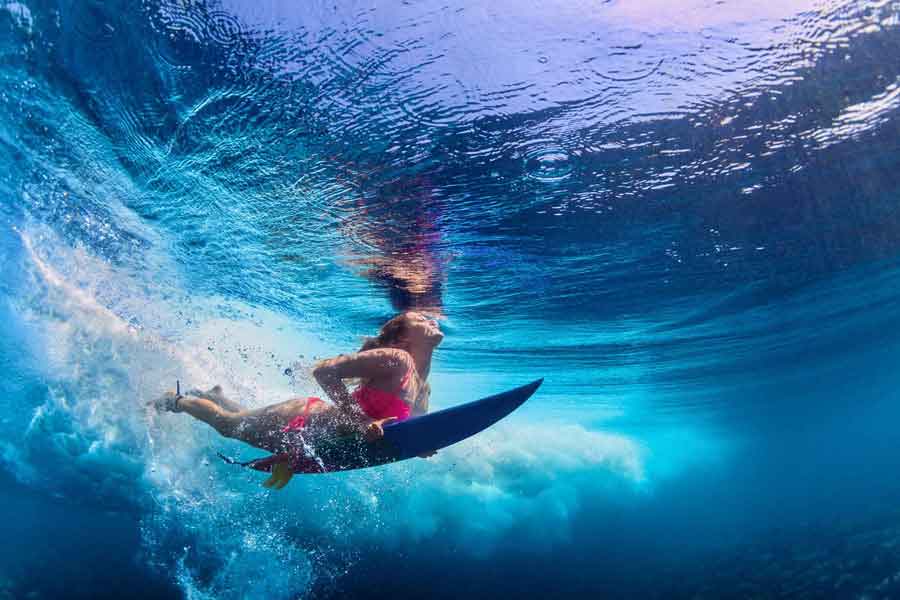
Currently, over 50% of shark attacks are targeted at surfers. However, this is not due to the shark’s choice of prey but rather a regrettable mistake.
Most of these attacks occur in waters where seals are abundant. A surfer lying on a surfboard and seen from below has a silhouette similar to that of a seal swimming on the surface. Considering that a 300-kilogram tiger shark has a brain that could fit in a small coffee cup, we can conclude that it is an animal that attacks based almost exclusively on instinct and not on an elaborate choice of prey.
The shark simply happened to be at the breakwater, looking for an unsuspecting seal, and sees a surfer silhouetted on the surface, resembling the sought-after prey, without hesitation, it attacks.
Attacks on surfers are often similar to attacks on seals. The shark strikes from the bottom, targeting the rear of the animal where it cannot be seen. The initial attack is usually aimed at the victim’s hindquarters to disable their escape. Afterwards, the shark withdraws to a short distance, waiting for the incapacitated seal to bleed and weaken before initiating the final attack. In the case of surfers, this final attack rarely occurs as the injured person is usually rescued and taken out of the water, which obviously confuses the predator.
Shark attacks are always spectacular and make headlines, but only about twelve people worldwide die each year as a result of them. This number is not as striking when compared to the thousand people who are crushed or kicked by cows each year. Currently, there are four times more chances of being struck by lightning than being attacked by a shark.
The bad reputation of sharks, along with some movies presenting them as terrifying creatures, has caused the general public to fear and hate them. Very few people would be interested in a conservation campaign for sharks. Undoubtedly, they are not as popular as dolphins, but they are no less essential than dolphins for the ocean. Without them, the marine balance would be lost, and the food chain would be disrupted. Conserving sharks also means conserving the ocean, even if we may not understand or find it hard to believe.
«You cannot defend what you do not love, and you cannot love what you do not know.»

